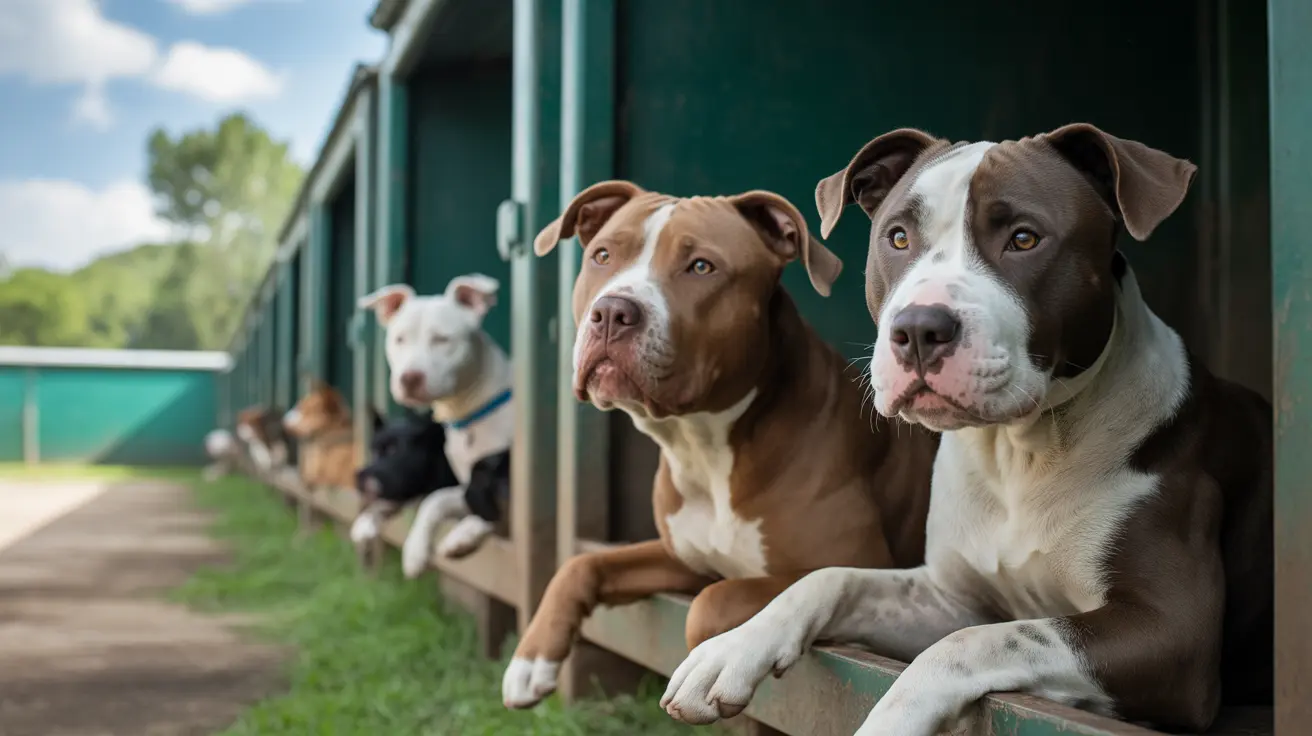Greenville County deputies have arrested a man in connection with dog fighting activities following an investigation that began in early October. This arrest highlights the ongoing efforts by law enforcement to combat illegal animal fighting operations throughout South Carolina and underscores the serious legal consequences individuals face when participating in these cruel activities.
Dog fighting laws in South Carolina carry severe penalties, reflecting the state's commitment to protecting animals from abuse and exploitation. This recent arrest serves as a reminder to pet owners and community members about the importance of recognizing and reporting suspected animal cruelty in their neighborhoods.
Understanding Dog Fighting Penalties in South Carolina
South Carolina treats dog fighting as a serious criminal offense under state law. The penalties for those convicted of organizing, participating in, or facilitating dog fighting operations can include substantial fines and imprisonment. These laws align with the federal Animal Fighting and Baiting Act, which provides additional prosecution tools for cases that cross state lines or involve interstate commerce.
The legal consequences extend beyond just the organizers of fighting rings. South Carolina's dog fighting spectator law makes it illegal to attend these events as a spectator, recognizing that audience participation fuels the demand for these cruel activities. This comprehensive approach to enforcement demonstrates the state's zero-tolerance policy toward animal fighting.
Signs of Dog Fighting Operations in Communities
Recognizing the warning signs of dog fighting can help community members protect animals and assist law enforcement in their investigations. Common indicators include multiple dogs kept in poor conditions, unusual amounts of activity at odd hours, and the presence of fighting paraphernalia such as treadmills, spring poles, and veterinary supplies being used by non-professionals.
Other signs of dog fighting operations may include dogs with suspicious injuries, particularly around the face and legs, or animals that appear to be bred specifically for aggression. Properties used for dog fighting often have reinforced areas or rings, and neighbors might notice increased foot traffic during evening hours or on weekends.
How to Report Dog Fighting Safely
If community members suspect dog fighting activities in their area, they should report these concerns to local law enforcement or animal control authorities immediately. The investigation that led to the recent Greenville County arrest demonstrates how citizen reports and law enforcement cooperation can effectively address these crimes.
When reporting suspected dog fighting, individuals should provide as much detail as possible about their observations while prioritizing their personal safety. Documentation such as photographs, license plate numbers, and specific times of suspicious activities can help authorities build stronger cases against perpetrators.
Dog Fighting Rescue and Rehabilitation Efforts
Animals rescued from fighting operations face unique challenges that require specialized care and rehabilitation. Many organizations throughout South Carolina work to provide medical treatment, behavioral rehabilitation, and eventual adoption opportunities for dogs recovered from fighting situations.
The rehabilitation process for dogs rescued from fighting typically involves extensive veterinary care, behavioral assessment, and gradual socialization. While not all dogs can be successfully rehabilitated for adoption, many can overcome their traumatic experiences with proper care and patience from dedicated rescue organizations.
Community Impact and Prevention
Dog fighting operations harm entire communities, not just the animals involved. These activities often connect to other criminal enterprises and can decrease property values while increasing safety concerns for residents. The recent arrest in Greenville County represents law enforcement's commitment to addressing these broader community impacts.
Education plays a crucial role in preventing dog fighting by helping community members understand both the legal consequences and the moral issues surrounding animal cruelty. Pet owners can contribute by ensuring their animals are properly secured and by staying informed about local animal welfare issues.
Frequently Asked Questions
What are the penalties for dog fighting in South Carolina?
Dog fighting in South Carolina is prosecuted as a felony, with penalties including significant fines and potential imprisonment. The exact penalties depend on the specific charges and the individual's role in the operation, whether as an organizer, participant, or spectator.
How can I report suspected dog fighting in my neighborhood?
Contact your local law enforcement agency or animal control office immediately if you suspect dog fighting activities. Provide detailed information about your observations, including dates, times, and specific behaviors you've witnessed, while ensuring your personal safety.
What are the warning signs of dog fighting operations?
Common signs include multiple dogs in poor conditions, unusual nighttime activity, dogs with suspicious injuries, fighting equipment, and increased foot traffic to properties. Trust your instincts if something seems unusual regarding animal treatment in your area.
Can dogs rescued from fighting be rehabilitated and adopted?
Many dogs rescued from fighting situations can be successfully rehabilitated through proper veterinary care, behavioral training, and patient socialization efforts. However, each case requires individual assessment by qualified professionals.
Is being a spectator at a dog fight illegal in South Carolina?
Yes, South Carolina law makes it illegal to attend dog fighting events as a spectator. This law recognizes that spectators contribute to the demand for these cruel activities and helps law enforcement prosecute all participants in fighting operations.
Moving Forward: Protecting Animals and Communities
The arrest in Greenville County represents an important step in protecting animals and strengthening community safety. As law enforcement continues to investigate and prosecute these cases, community awareness and cooperation remain essential tools in combating animal cruelty.
Pet owners and community members can make a difference by staying vigilant, reporting suspicious activities, and supporting local animal welfare organizations. Together, these efforts help ensure that animals receive the protection they deserve under South Carolina law.






